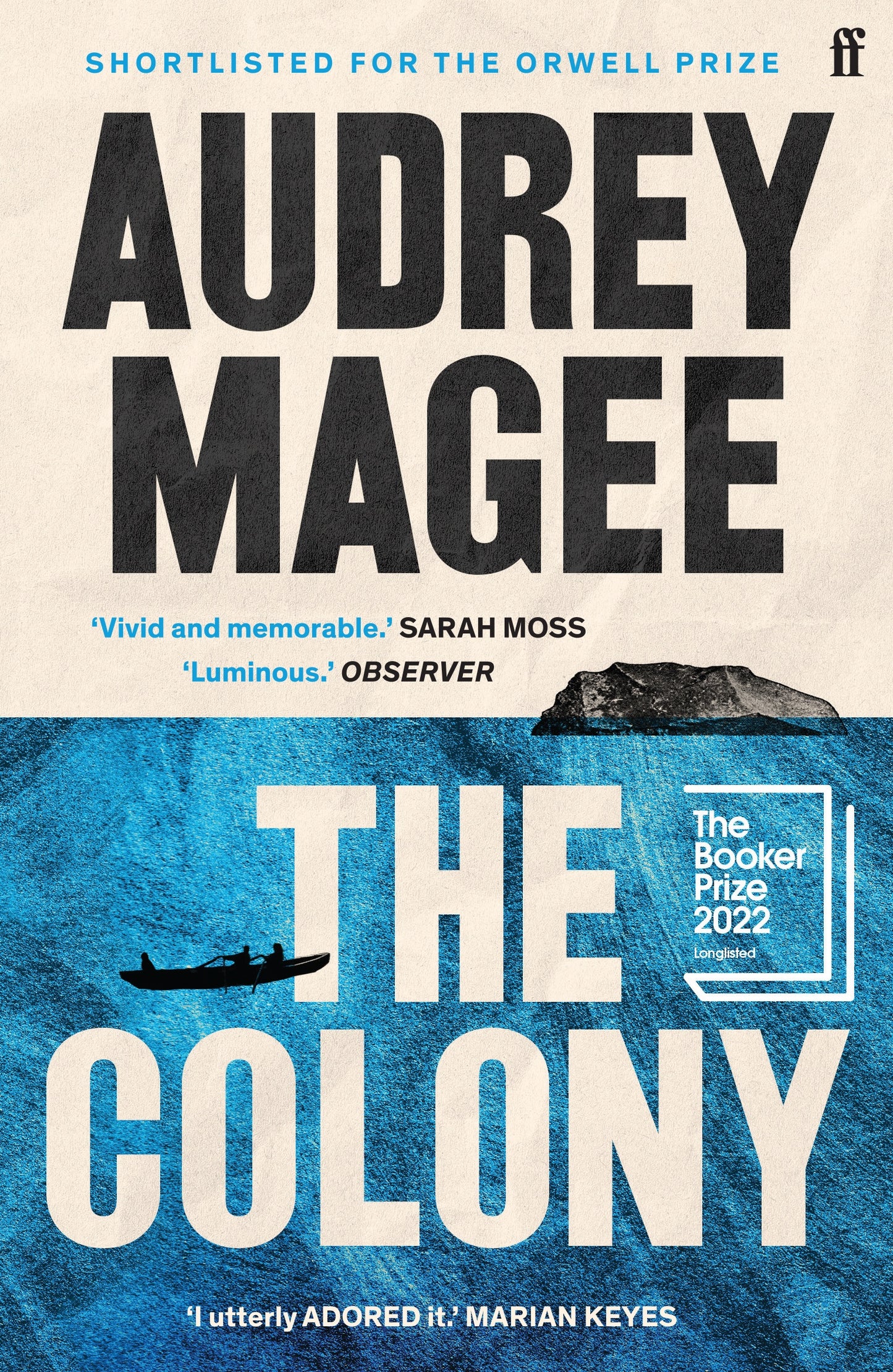Audrey Magee
Colony
Colony
Couldn't load pickup availability
"The clarity of Colm Toibin's prose is blended with the emotional truth of Anne Enright in this stand-out new novel of belonging and loss."
Review by Kerry
This book had me from the opening pages. Magee skilfully sets the scene by using a call and response style of dialogue and clipped third person observations to begin her character sketches.
Mr Llyod, an English artist is being rowed to an isolated Irish island to spend the summer painting its cliffs. The sardonic exchanges between the boatman and Lloyd quickly establish the artist as rude and childishly demanding, a bit of a prat really. On arrival Lloyd does little to endear himself to the locals, petulantly ordering the removal of furniture and bemoaning the lack of light in his lodgings. Within days the disgruntled Lloyd’s romantic notions of artistic solitude are further shattered with the arrival of JP. JP is a French linguist who has been studying and championing the islands use of Irish for 5 years. Zealous in his determination to preserve the islands dialect he too is furious to find his academic hot house has been compromised by an English speaker.
Both men set about undermining the other. JP goading Lloyd with English colonisation barbs arguing the importance of language in relation to identity and the role the English have played in undermining it in Ireland. With a French father and Algerian mother, JP is the result of a mixed marriage from the French Algerian occupation. Lacking any self-awareness he fails to see the irony in being so desperate to be considered French he refused as a child to learn his mother’s Arabic. Lloyd retaliates by charging him with vanity and appropriating the islanders’ language to earn himself a doctorate. This is a man whose vanity places himself as the central figure in staged dramatic art compositions in his imaginings. As these men huff, puff and patronise, four generations of the Gillan family look on unimpressed and unmoved, they have their own truths.
Part satire, part lament, The Colony explores the notion of language and identity, colonisation and appropriation. Throughout the text the small cast of characters give voice to their prejudices, fears and disappointments but it is the observations of the finely drawn adolescent James Gillan that lend it emotional weight– the plot pivots around this beautifully imagined boy.
Throughout Magee’s prose shifts- at times sliding into free verse slipping down the page. It is interleaved with blocks of reportage and offers pages punctuated with dialogue that is thrown, caught and batted between characters. Her language is alive, it lifts from the page - you can hear it.
In direct contrast to the lyrical prose of this shape shifting novel are the radio broadcasts of sectarian violence that intersperse the text. Always on their own page and centrally typeset these broadcasts evoke an image of a voice in a void reporting on the Troubles. The repeating acts of senseless violence highlighting that people may be listening but no one is really hearing. It is quite poignant that it is the Irish speaking woman who do hear the English broadcasts while the men at the kitchen table only listen, voicing shallow platitudes in response to the women’s thoughtful observations. The sea has taken these women’s husbands, their sons, fathers, brothers and uncles – they are well versed in the language of loss, they are fluent in grief. The difference between listening and hearing, seeing and recognizing are reoccurring motifs throughout this novel and as readers we are asked to pay close attention.
All of Magee’s characters are well drawn and while not quite an ensemble her skilled writing has created a unifying effect ensuring the reader will be left mulling over The Colony long after they have read the last page.
A stand out read that would provide excellent discussion for book clubs
Other Reviews
'This novel is better than good. Its beautifully realised lament for lost language and cultural sustainability has universal relevance.' - Canberra Times
'Intelligent and provocative...The Colony contains multitudes - on families, on men and women, on rural communities - with much of it just visible on the surface, like the flicker of a smile or a shark in the water.' - The Times
'A vivid and memorable book about art, land and language, love and sex, youth and age. Big ideas tread lightly through Audrey Magee's strong prose.' - Sarah Moss
'So brilliant in its quiet tragedy, so revealing in its precision. It haunts me.' - Tsitsi Dangarembga
'Audrey Magee has written a lyrical, rich, and emotionally powerful novel. The Colony comes alive like a brooding and beautiful canvas painted off the Irish coast.' - Dominic Smith
Share


